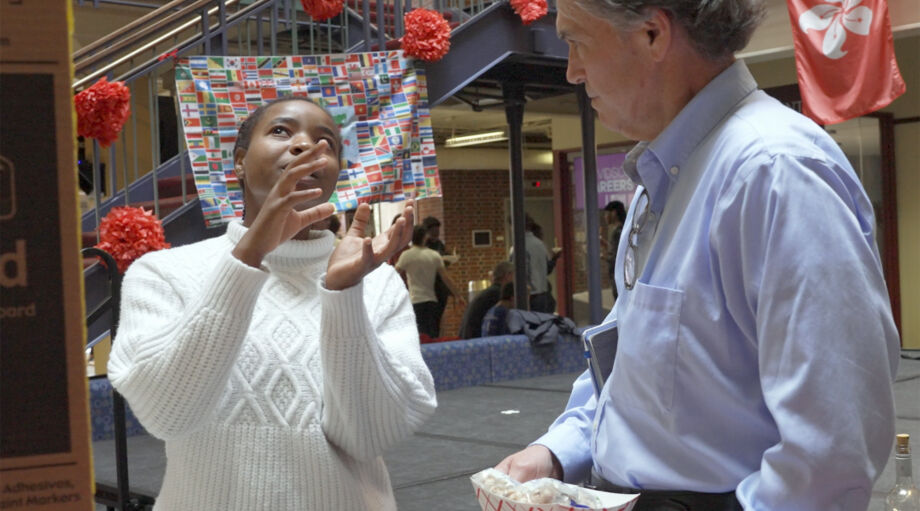“We are cultivating disciplined and creative minds for lives of leadership and service. That is what we are doing.”
Shelley Rigger, Vice President for Academic Affairs and Dean of Faculty


In the early 20th century, Davidson College found itself at a precarious juncture. The small liberal arts college just north of Charlotte had seen the endowment to support its operations mostly disappear. One of its main buildings, Chambers, had burned in a fire. A campaign to raise funds for its renovation and restoration had raised only a portion of the necessary funds.
The school was in financial jeopardy.
Its fortunes changed dramatically, however, when James B. Duke asked Irving Harding, a Davidson native, family friend and frequent guest at his Charlotte mansion, if she would take him up to see the college. He was crafting his philanthropic will, and Harding figured Davidson had a chance at becoming one of his beneficiaries. She recruited her father, an alum and professor of Greek at the college, to help show Mr. Duke around campus one morning. He expressed admiration for all the school had achieved on its meager budget.
“I think his mind was made up really before he went,” she later said of Mr. Duke. “He just wanted to make sure he hadn’t made a mistake.” Today, his foresight has been amply validated by a century’s worth of productive partnership between Davidson College and The Duke Endowment. The Endowment has been an early supporter of strategic priorities that have elevated Davidson to its current place among the nation’s leading liberal arts colleges.
The Davidson Trust — the school’s historic commitment to meet 100 percent of students’ calculated financial need through a combination of grants and campus employment — was made possible in part through Endowment support. Davidson was the first national liberal arts college to make such a commitment and remains one of only about 20 institutions nationally to offer need-blind admissions while meeting students’ full financial need without packaged loans.
“We have found affordability and accessibility to be a fundamental part of our commitment to building public good, to educating students for lives of leadership and service,” said Douglas Hicks, president of Davidson College. “The Duke Endowment, as President (Samuel Reid) Spencer, one of my forebears, said, has taken Davidson from being an average, solid college to being one of the great colleges in the country. And we have every belief that that relationship will continue into the future.”
“We are cultivating disciplined and creative minds for lives of leadership and service. That is what we are doing.”
Shelley Rigger, Vice President for Academic Affairs and Dean of Faculty
President Hicks noted three key areas where that relationship has and will continue to flourish — student financial aid, the hiring of excellent faculty and constructing world-class buildings where the educational experience can blossom.
“The most valuable thing that Davidson College brings to the world are students who have learned well from adults who are gifted and ethical people,” said Shelley Rigger, vice president of academic affairs and dean of the faculty.
For students like Jalyssa Hobbs, a junior from Clinton, N.C., the financial aid package is a big draw. But once they arrive at Davidson, the rigorous academic offerings, smaller class sizes and personalized instruction inspire passionate loyalty.
“It’s very easy to get trapped into that mindset of going to… a big state school,” said Hobbs. But being at a smaller school “allows you to really build those relationships with not only your classmates, but your professors and other faculty members.”
“I cannot reiterate how blessed I am to be here.”
